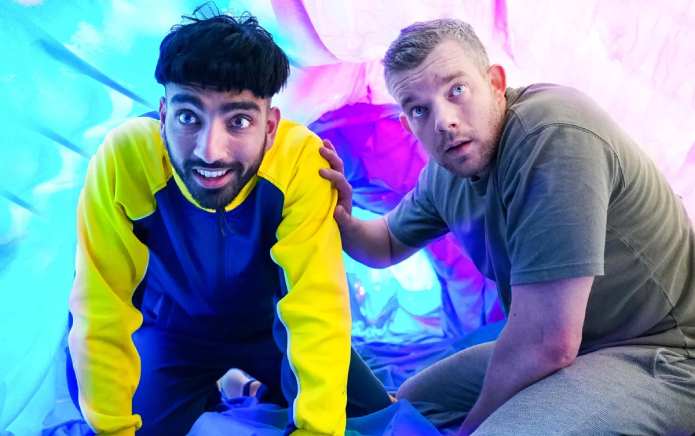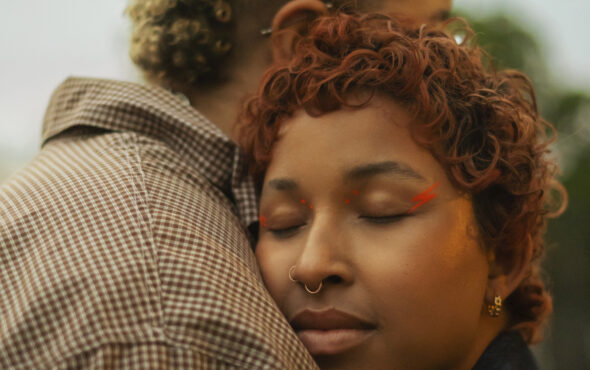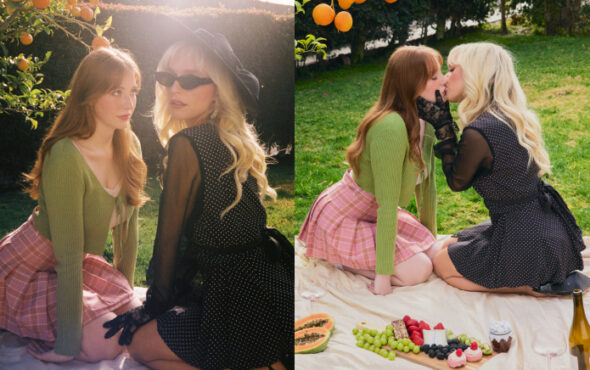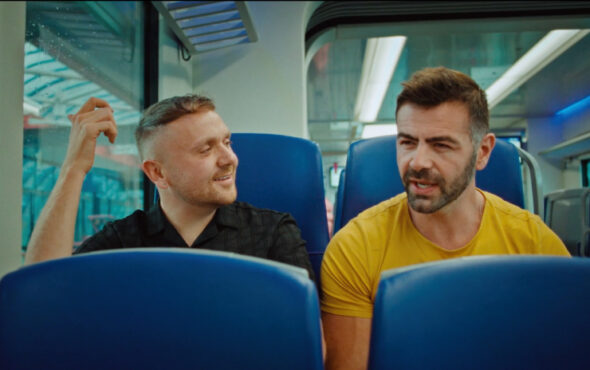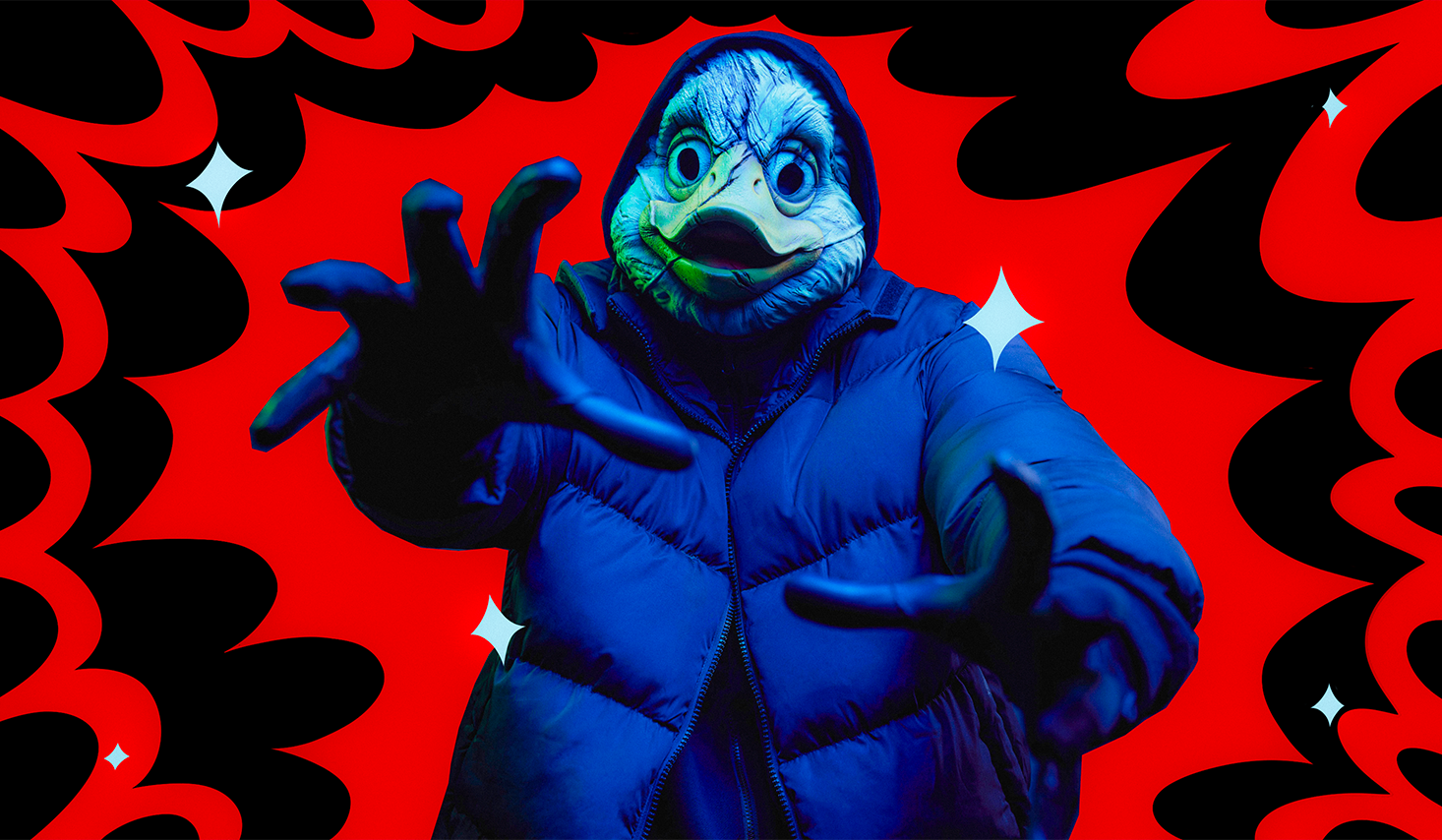
With a switch from slasher to folk horror, the absence of the Sacramentum and the savage deaths of beloved heroes, “safe” isn’t a word that can be associated with the second season of Wreck. “I just wanted to come back with a bang, and I think we’ve created a space for those things to happen now,” writer and creator Ryan J. Brown tells GAY TIMES. “Anyone can die at any moment.”
Season two follows Jamie (Oscar Kennedy) and Vivian (Thaddea Graham) in their attempts to expose the blood-thirsty Velorum Corporation by infiltrating their latest deranged venture – a so-called ‘wellness’ festival for millionaires in the Slovenian countryside that, once again, has hidden murderous motives.
All of the main players return, such as Rosie (Miya Ocego), Olly (Anthony Rickman), Sophia (Alice Nokes), Comac (Peter Claffey), Lauren (Amber Grappy), Karen (Harriet Webb) and Officer Beaker (Warren James Dunning). There’s some new faces, too, including Heartstopper alum Bradley Riches and the legendary Alan Dale (Lost! The OC! Ugly Betty!) as Velorum’s head honcho.
Following in the footsteps of the refreshingly rainbow-tinted first season, Wreck’s sophomore season is awash with LGBTQIA+ representation that doesn’t feel shoe-horned in, tokenistic or tired. Rosie’s transness, for example, isn’t acknowledged until halfway into season two. “It’s beautiful because it’s not a massive song and dance,” says Ocego. “It’s so validating for me as an actor, to not just be cast to tick a box. […] I didn’t feel like I was being used in any way shape or form.”
All six episodes of Wreck season two are now streaming on BBC iPlayer. To mark the release, we caught up with Brown, Ocego and Sam Buttery – who plays the deliciously wicked new villain Jean – about body horror, facials and hydrochloric acid. (It’s all relevant, I swear!)
GAY TIMES: The first season of Wreck was an homage to the slasher genre. That’s still there in season two – and I’m so pleased the duck returns – but with more elements of folk horror. Ryan, was that intentional? Switching up the genre?
Ryan: Yeah, in every series I want a new location. It still has its slasher roots, but with a slight bent into a different sub-genre of horror. And this series, it was folk, I’d say. Midsommar is in there, there’s a lot of The Wicker Man.
Miya: It’s very The Cabin in the Woods, as well.
Ryan: There’s some gruesome body horror coming up, and some very intense facials happen…
Miya: I missed out with that one!
Ryan: With Devon’s character, you can guess which wellness guru she’s based on, a little bit. All of her murders and her deaths, I like the idea that a lot of them are wellness-adjacent. The hydrochloric acid. Yeah, she’s a sicko.
GAY TIMES: Devon is unhinged, which I love. The scene where she visits all the prisoners in the dungeon and she’s simply like, ‘Hello! Are you all okay?’
Miya: She loves it.
Ryan: Her dad eventually comes to the festival, the owner of Velorum, who’s played by Alan Dale. She has such a nice arc because you see her desperately trying to please him. She’s so incredible. Sam has the most scenes with her, so she can speak…
Sam: I’m obsessed with Devon. The character of Jean would do anything for Devin Deveraux. It’s the boring administration behind murder, and she operates co-dependently. I feel like, in real life, Niamh [Walsh] can do no wrong in my eyes, either. She, to me, is 100 per cent perfect.
GAY TIMES: Sam, talk to me about Jean. She is silent, but quite evil…
Sam: Jean is co-dependent, evil, will do anything that Devon says and her priority is efficiency over any human emotion.
GAY TIMES: Why is Jean so loyal to Devon?
Sam: In my head, I’ve got a stupid backstory for Jean where I think she used to live with her puritanical aunts and the way she learned to survive was to do what other people told her. Ryan hasn’t written any of this in, but in my head the puritanical aunts made her co-dependent through trauma. It’s layered!
Ryan: With mindfulness and wellness, there is a cult-ish thing. And I think Devon’s found Jean somewhere where she is quite vulnerable and has taken her under her wing and she’s brainwashed her a little bit.
Sam: There’s a secret, unrequited love. She’s always watching Devon.
Miya: An unspoken lesbian affair.
Sam: It’s an unspoken lesbian affair. It’s a ULA.
Ryan: Later on – without spoiling too much – Devon does have a love interest, and in the background of every scene Sam is just there giving daggers, and it’s so funny.
GAY TIMES: Miya, tell me about Rosie and her trajectory across this season. She’s always been feisty, but this time around it feels like she’s not taking any shit whatsoever.
Miya: She’s definitely the ‘fight’ element in ‘fight or flight’. She’s off the ship, she’s left the Cher costumes at home, sadly. There was such a gang aspect last season, but they get split up in this season quite often. So, we get to dive into her character and get to know a little bit more about her. We address that Rosie’s trans in this season. It’s beautiful because it’s not a massive song and dance. It’s between me and Sophia and she says a transphobic slur accidentally, and then Rosie’s response… She knows not to mess with her again, let’s say.
There’s bigger things at hand such as murder and running away from you, [Sam]! Society needs to take something from that as well. The labels that [society] gives us does not define us as humans. It’s beautiful because there’s reconciliation between the two characters afterwards as well, which will be amazing for younger trans individuals to watch and see themselves on screen.
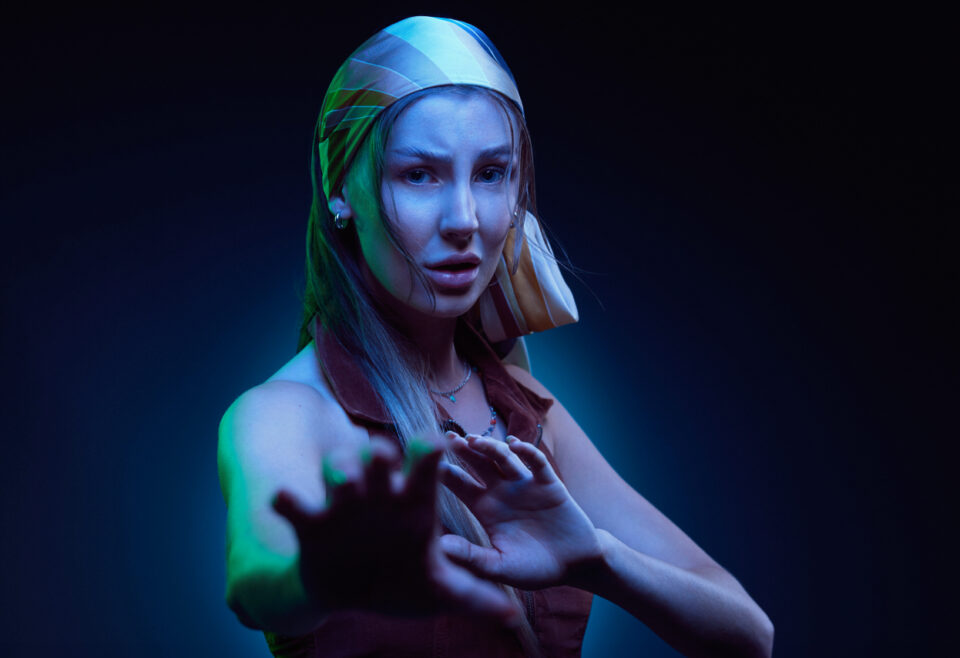
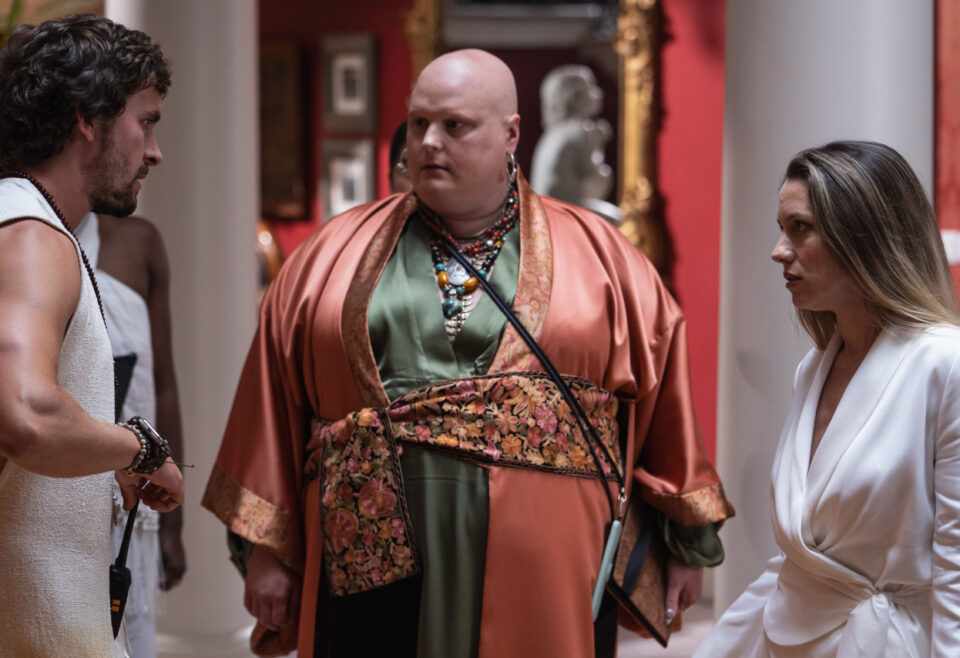
GAY TIMES: Let’s talk about the queer representation. Ryan, the first season was so well-received for how it effortlessly incorporated LGBTQIA+ characters with zero focus on tired trauma elements. Did that add pressure, heading into season two, or was it, again, quite a natural process for you?
Ryan: I think it was more of a fire underneath me. The amazing response that series one got pushed me to go further and to continue. We introduce a lot more LGBTQ+ characters in series two. It was such a nice nod that you’re doing the right thing here and this isn’t done very often, where the characters are in a show that has nuanced and non-tokenistic representation. The story leads and propels, but the people in the driving seat are different to what you’re used to. That’s what I want to continue doing, not having the characters bogged down in trauma. Hopefully series two feels refreshing in that you can watch this show and the sexuality and gender of the characters is so irrelevant to the plot.
The response to series one was interesting because it was really embraced by the queer community around the world. But also, hetero audiences understood that what we were doing was a little bit different, and they enjoyed that too. Rosie’s character, we decided to not acknowledge her transness in series one and if we got a second series, we said we would acknowledge it briefly and move on. I think we’ve pulled that off nicely and I hope people respond well to that. That happens in the most intense episode, I think. Episode four is like an Evil Dead meets… I don’t wanna spoil it, but it’s really intense and the most action-packed episode. By that point, there will have been 10 episodes and this is the first time we bring up Rosie’s transness.
Miya: It’s so validating for me as an actor, to not just be cast to tick a box. Ryan wrote it so beautifully and naturally and I was so comfortable. I didn’t feel like I was being used in any way shape or form.
GAY TIMES: The LGBTQIA+ experience isn’t all about trauma, and it feels like the industry is finally waking up to that fact. Finally…
Sam: In life, I would generally like to just be left alone. I want to go to the shops, get a little coffee – I don’t really want to talk about my identity!
Ryan: Not to be devil’s advocate, but when it’s done well… I’m talking about Big Boys, for example, a lot of that is about coming out. Yes, we’ve seen that story before, but Big Boys does it in a unique way that we’ve not seen. And there’s still a place for those stories and they are still important, but I really hope we get more representation in the UK where there’s someone different in the driving seat but the story isn’t about their identity.
Sam: I’d get more work that way!
Miya: It’s amazing to not have to perform trauma.
Sam: If you want to see trauma being performed, darling, just go down to Old Compton Street. You don’t need to look on the BBC!
Ryan: I think I said this during series one, but we do make for the best protagonists in these stories because we have that in-built resilience that we’ve had from a very young age. We have a survival kit that not everyone has, and so throwing those characters into stories where they’re protagonists, they instinctively know what they’re doing. This is why we need gay Die Hard.
GAY TIMES: Or a gay John Wick.
Sam: I would love a gay John Wick. I love the John Wick films!
Ryan: Someone’s differences arming them, rather than the differences being pulled apart and interrogated, is refreshing. I want more of that.
GAY TIMES: Ryan, you take a few big swings this season – especially in the first episode. For one, it’s on dry land. Two, you chop off a few fan-favourite characters. In horror, it feels like you need to take big swings, right?
Ryan: Yeah. I think series one was about always introducing this found family and, going forward, testing those relationships. So, you’re much more fearful of losing them because we’ve fallen in love with them. You need to do that in TV, because it’s such a long-form thing, whereas in film you don’t. There’s more deaths in series two than the entirety of series one. I just wanted to come back with a bang, and I think we’ve created a space for those things to happen now. Anyone can die at any moment.
Miya: Ryan definitely edged us throughout series one…
Ryan: I did what?
Miya: And in season two, it was the full orgasm, darling.
The second season of Wreck is now streaming in full on BBC iPlayer.
